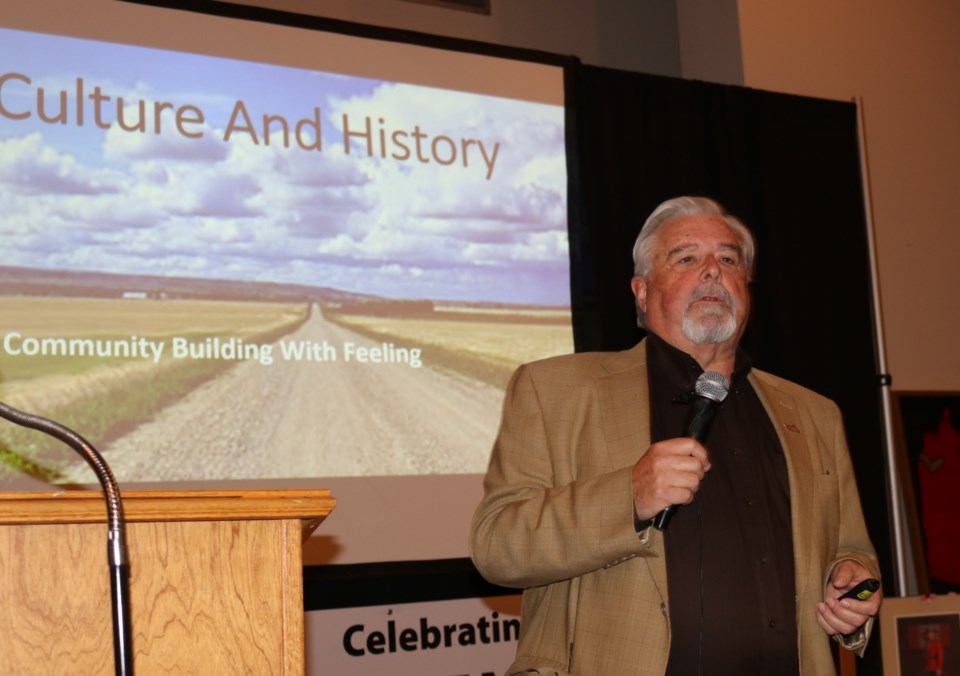YORKTON - The fifth Yorkton Brick Mill Heritage Dinner was held Wednesday at a sold-out St. Mary’s Cultural Centre.
The evening was a little more special than the previous four because it marked the 125th anniversary of the mill.
The event was also special in the sense it is the first since it was announced the interpretive centre build at the mill site would be moving forward.
The new centre will allow educational opportunities about Yorkton’s agricultural past and the continued importance of the sector to the city.
It is a theme focused on by the evening’s guest speaker, well-known media personality Paul Martin.
Culture is part of agriculture,” he said, adding people need to realize how important the sector is to the province.
Martin said in general culture is something that a community can build on once they recognize “how powerful it can be.”
In that respect Martin said the efforts of the old mill are not just about saving an old building.
“This is a community builder,” he said, adding it can be a catalyst for building on the idea of culture as an actual commodity.
“Culture is an exportable commodity,” he said.
In that regard Martin noted something Croatian composer Nenad Bach told him, that being key factors in a successful community are good food, good coffee and good music, because those things attract people to live-in, or visit a city.
Martin expanded on that idea by pointing to the fastest growing city in the U.S., Austin, TX. which is noted to its music and culture.
Ultimately, Martin said it comes down to having a plan to build a future.
“Set yourself a goal and go get it,” he said.
Of course agriculture itself is a community builder because it generates business, noted Martin, adding Yorkton is aware of that with the arrival of two major canola crushing facilities.
But, those plants could mean even more in the future.
Martin reminded that while there is a market for the oil produced at the plants, 55 per cent of crushed canola seed is meal, which has limited, and lower valued markets. What might be created in terms of economy if new uses for the meal are developed?
That of course would take capital investment, and that is important for community growth.
“When you get capital starting to flow people follow capital,” said Martin.
And more people is a good thing, he said.
While Saskatchewan’s population continues to grow – 9,000 from April-thru-June – it’s not enough.
“We’re falling behind the rest of Canada. You need population to make a community function,” said Martin.
The evening also included a presentation by RCMP CST Ane Roodt marking the 150th Anniversary of that organization, and a special presentation was also made to Glenn Wiseman, retired treasurer and founding board member with the mill committee.






